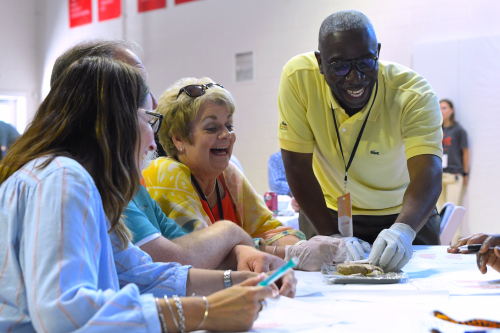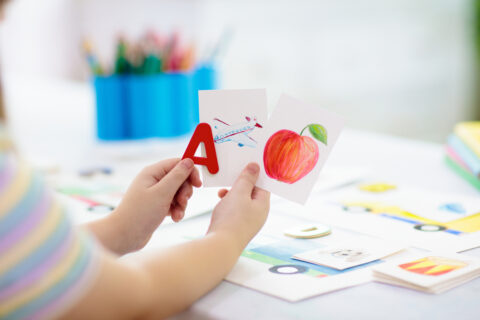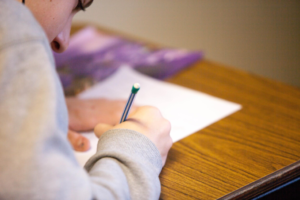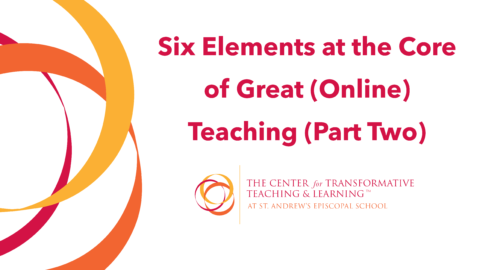Every year at our Science of Teaching and School Leadership Academy, we gather hundreds of educators together (this year from 19 states and nine countries) with the shared goal of using insights from research on the science of learning to make us better — every day, in every class, for every child. Better teachers mean better outcomes. We take findings mostly from cognitive science and psychology, put them into a form that educators find digestible, and help teachers and school leaders find ways to translate them into every day actions. We’re always evolving, and every Academy builds on our experience the year before.
Early in our journey to create the Academy, we reorganized the wealth of academic information in the multidisciplinary field of Mind, Brain and Education (MBE) in a way that works for teachers, remixing it in a way that would never show up in an education journal. For example, we created bins titled, “Move beyond lecture” and “Combine joy and rigor.” But this is an ever-evolving work in progress, and each year’s Academy, just like one of the classes we teach, is refreshed and revised. And, more importantly, new people coming to the Academy breathe new life into it. The new juxtapositions this brings help us see things with fresh eyes.
As we look back on this year’s Academy, we’d love to share some of the themes that emerged from our time together. Read on for a glimpse into what we were up to—and some simple ideas that can help your classroom today.
EASY-TO-IMPLEMENT, RESEARCHED-BACKED STRATEGIES
It’s hard for teachers to figure out what’s truly helpful for students, and what’s not. Some “old chestnuts” of teaching are indeed supported by the research, but others need to be tweaked, replaced or scrapped. At the Academy, we help teachers examine and revise their current practice. For example:
- When giving feedback to students, it’s important to give them an opportunity to work on it sooner rather than later. If they can’t put their new knowledge into practice quickly, they’ll often lose the gist of your feedback. So many hours of hard work by teachers is essentially wasted because they do not give even 10 minutes of class time for students to immediately work on the feedback that took, often, hours to produce.
- It’s crucial to teach learning strategies alongside subject matter. Elementary teachers tend to do this well, but we often lose the practice with older students. It’s always important not to just teach what a student needs to know, but how they can learn, recall, and use that knowledge. This is true in all subjects, even the most advanced. For example, students in AP Biology, who may one day find themselves in medical school, benefit from developing a really robust set of memory strategies that they know work for them.
DIRECT INSTRUCTION + TIME FOR APPLICATION & REFLECTION = RELEVANCE
The Academy has general sessions for the entire cohort, but we also break up into “translation groups” that can help teachers address their specific concerns and challenges. In these breakout sessions, we cover some content via direct instruction, and then provide time for reflection. Mentors work with groups of 12-15 teachers, working collaboratively to figure out how to put new ideas to work for their students. And, just as we often ask our students to do, we ask ourselves, “What should I keep doing, start doing, or stop doing?”
We believe that the real magic happens when we can prepare teachers to work in their own spaces—where they have knowledge, mindset, and confidence to figure out how they can put their Academy experience to work in a nuanced way. A way that works for their subject, their kids in their community, and with their personal voice as a teacher. Research backs this up: context-dependent factors often determine whether a strategy will work or not work. That’s why we provide space for teachers to discuss their individual experiences, and help them find ways to make the promising principles from MBE work for them.
RELATIONSHIPS: THE SECRET SAUCE OF SUCCESSFUL CLASSROOMS
Strong teacher-student relationships underpin a huge portion of the strategies we explore at the Academy. They play a role in mindset research, theories of belonging, balancing stress, and how students receive feedback, among others—all of which are crucial in a student’s long-term educational experience, all of which affect school outcomes.
Similarly, strong relationships with other educators help us continuously improve. We focus on creating those bonds during Academy week—many participants are from very different kinds of schools and organizations, and rarely find themselves in the same room otherwise.
GETTING STUDENTS TO “THINK HARD”
When Rob Coe, former professor at Durham University in the UK, was asked about his theory of learning, he answered, “Learning happens when you think hard.” At first, this might seem vague or oversimplified, as Rob immediately acknowledged when he first said it, but it’s true! When students think hard, they learn—through fundamental, physiological changes in their brains. It actually leads to some important questions for teachers to ask:
- Where in this lesson will my students need to think hard?
- How do we keep thinking hard at the top of students’ agendas?
- How do we get them over the hurdle of resistance to doing difficult things? Some answers to that last question include:
- Adding real-world relevance to our assignments
- Helping students see the purpose of each activity, especially homework
- Teaching and assessing in multiple modalities
- Offering carefully constrained elements of choice at times—and some guidance to choose well
- Balance stress (some stress helps learning; lots does not)
- Helping students feel that they belong in our schools and can be successful
One of our favorite things about the Academy is that it’s a tangible way for us to see the impact of our work and be reminded of our purpose. From teachers to school leaders, to system-level administrators to the student interns who are essential voices in every session of the Academy, we love seeing the unique mix of ideas traded among all the different stakeholders in education. Every year is an adventure, every year makes us better, every year grows our confidence that all schools can put the science of learning to work.
Here at the CTTL, we offer PD to teachers in ways that fit their classrooms and their lives. Neuroteach Global helps teachers infuse their practices with research-informed strategies for student success—in just 3-5 minutes a day, on a variety of devices.




